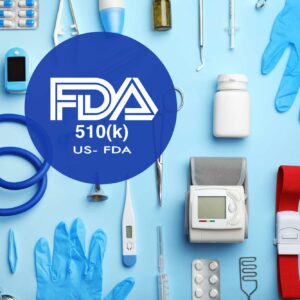Update to FDA’s Enforcement Policy on Major Food Allergen Labeling and Cross-Contact
As FDA recalls related to allergen labeling continue to abound, and as the agency continues to receive reports of consumers who experienced adverse reactions following exposure to an allergenic substance in foods, FDA provided a much-needed update with its issuance of an updated Draft Compliance Policy Guide to provide guidance to FDA staff on FDA’s enforcement policy regarding major food allergen labeling and cross-contact. The draft CPG represents FDA’s current thinking on FDA’s regulatory framework for major food allergens and the latest science, and when finalized, will replace existing guidance for FDA staff on the matter.
The draft CPG details FDA’s enforcement policy and cross-contact controls for major food allergens, including:
- The labeling requirements for major food allergens identified in the Federal Food, Drug & Cosmetic Act (FDCA)
- FDA’s position on the correct use of the ingredients list and the “Contains” statement for major food allergen declarations, including that major food allergens that are unintentionally incorporated into a food may not be declared in the ingredient list or the “Contains” statement; that when a “Contains” statement is used on a food label, then the food source of all major food allergens present in the food must be declared in the “Contains” statement even if they are also declared in the ingredient list; and the proper use of labeling multi-ingredients that contain major food allergens, in the ingredient listing
- Use of “allergen-free” claims must be truthful and non-misleading as there are no regulations defining specific conditions (e.g. allergen levels) to make a “free” claims from a major food allergen source
- FDA’s position on identifying the food source of the major food allergen for flavorings, colorings or incidental additives that contain a major food allergen in the ingredient listing and/or “contains” statement
- Requirements for companies to implement controls that prevent or significantly minimize allergen cross-contact and comments that allergen advisory statements are not a substitute for GMP compliance and do not relieve the manufacturer from the obligation to minimize or prevent allergen cross contamination; and
- Additional allergen labeling violations (e.g. failure to describe the type of tree nut, such as cashews, in the ingredient list or in a separate “Contains” statement)
The draft CPG instructs FDA field staff to closely examinate situations where the substances are intentionally added to food, but not declared on the label, or may be unintentionally introduced into a food product and consequently not declared on the label. The draft CPG also directs FDA field staff to examine situations where allergen cross-contact may occur because of inadequate current good manufacturing practices (cGMPs), inadequate preventive controls, or inadequate controls under the juice or seafood HACCP regulations.
For violations of food allergen labeling requirements under the Food Allergen Labeling and Consumer Protection Act (FALCPA), the Federal Food, Drug & Cosmetic Act (FDCA), and the Food Safety Modernization Act (FSMA), the draft CPG reminds industry that FDA can take several enforcement actions for failure to comply. It directs FDA field staff to assess a misbranding charge for labeling violations, and an adulteration charge for violative manufacturing conditions. It also addresses conditions in which FDA field staff should recommend an Import Refusal.
Comments on the draft CPG are due by July 17, 2023. Please contact us at info@garg-law.com for any questions on this draft CPG or to submit comments.


